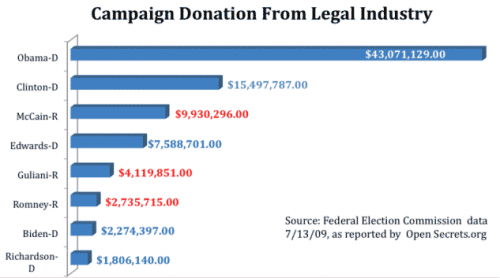A reader sent me this article on the new proposition F passed in San Francisco.
Under the Sick Leave Ordinance, employers must provide one hour of paid
sick leave to an employee for every 30 hours worked. The Ordinance
limits the amount of paid leave to a maximum of 40 hours of paid leave
for "small businesses," defined as employers who employ fewer than 10
employees, and of 72 hours of paid leave for larger employers.
Note that this applies to everyone -- part time workers, day laborers, housekeepers, nannies, you name it. Everyone gets an extra paid hour vacation for every thirty they work.
But Coyote! How can you say its vacation - the law says sick leave. Yes, I know, and I am sure supporters can fill any number of 30-second TV ads with heart-rending stories of people who got sick and needed paid time off. But all of us who have actually worked in real jobs and real companies know how most sick days get used - they become extra vacation days. Here is a guide to getting the most vacation possible out of your sick days. For this reason, many companies have done away with the distinction of sick and vacation days and just call them "personal days."
But the law makes sure that employers can't ask any of those nagging questions like "you don't sound sick on the phone." Because you don't actually have to be sick to take paid sick leave in San Francisco.
Proposition F, the "Sick Leave Ordinance," also expands existing state
law "kin care" requirements so that covered employees must be permitted
to use paid sick leave to care for siblings, grandparents,
grandchildren and a "designated person" of the employee's choice.
Employees must be permitted to use any or all accrued paid sick leave for such kin care.
"Yep, old Uncle Ed is sick again. I won't be coming in today but you still have to pay me." And who's to say "care" for uncle Ed shouldn't include companionship in the form of some fishing. After all, California recognizes a service animal designation for companionship only.
But just to make sure that the employer does not ask any nagging question when Uncle Ed needs care on nine Fridays in a row, the law includes this:
In addition, Proposition F prohibits an employer from taking any
adverse action against an employee who exercises his or her rights
under the Ordinance. An employee's mistaken but good faith complaints
of employer violations of this Ordinance are protected. Any adverse
action by an employer against an employee within 90 days of the
employee's exercise of a right under the Ordinance creates a rebuttable
presumption of employer retaliation....
The Office of Labor Standards Enforcement has authority to
investigate alleged violations of the Ordinance. If the Office
determines that a violation has occurred following an investigation and
hearing, it may order relief including reinstatement, back pay, the
payment of any sick leave unlawfully withheld and various
administrative penalties.
The Ordinance also permits civil actions by the Office of Labor
Standards Enforcement, the City Attorney, "any person aggrieved by a
violation" (the term could encompass affected employees but also any
person for whom the employee sought to care or aid), and "any other
person or entity acting on behalf of the public as provided for under
applicable state law." The prevailing party may recover all "legal or
equitable relief as may be appropriate to remedy the violation"
including, but not limited to, reinstatement, back pay, the payment of
any sick leave unlawfully withheld, liquidated damages, injunctive
relief; reasonable attorneys' fees and costs. Employees and plaintiffs'
attorneys who sue employers on behalf of similarly-effected employees
and the general public may be entitled to equitable and injunctive
relief, restitution, and reasonable attorneys' fees and costs.
So, any violations by employees will be called "good faith" mistakes and are protected from any punishment. Employers, on the other hand, are liable for penalties and lawsuits should they make even a good faith mistake. Attempting to determine if an employee is cheating on his sick day designations will be treated as "retaliation" and punished. Note that while the office of labor standards have investigation abilities, all the investigative actions listed in their purview are employer violations. For example, there is language about employers reimbursing employees for sick days they should have paid, but where is the language about employees reimbursing employers for sick days taken fraudulently?
This is exactly how the unemployment system works. There is a heavy state enforcement arm, but only aimed at fraud by employers, not employees. Pick any state unemployment office at random and look at their web site. They will probably have a link for filing complaints. When you click on it, you will quickly see that the complaints they accept are only for employer fraud or impostor fraud, not employee cheating. In fact, as I wrote here about people taking vacation on unemployment, I was threatened with a lawsuit by an employee and with fines by the state agency in California for even suggesting that an employee was lying when he said he was "looking for work" (when I knew for a fact he was on a winter-long vacation in Mexico).
